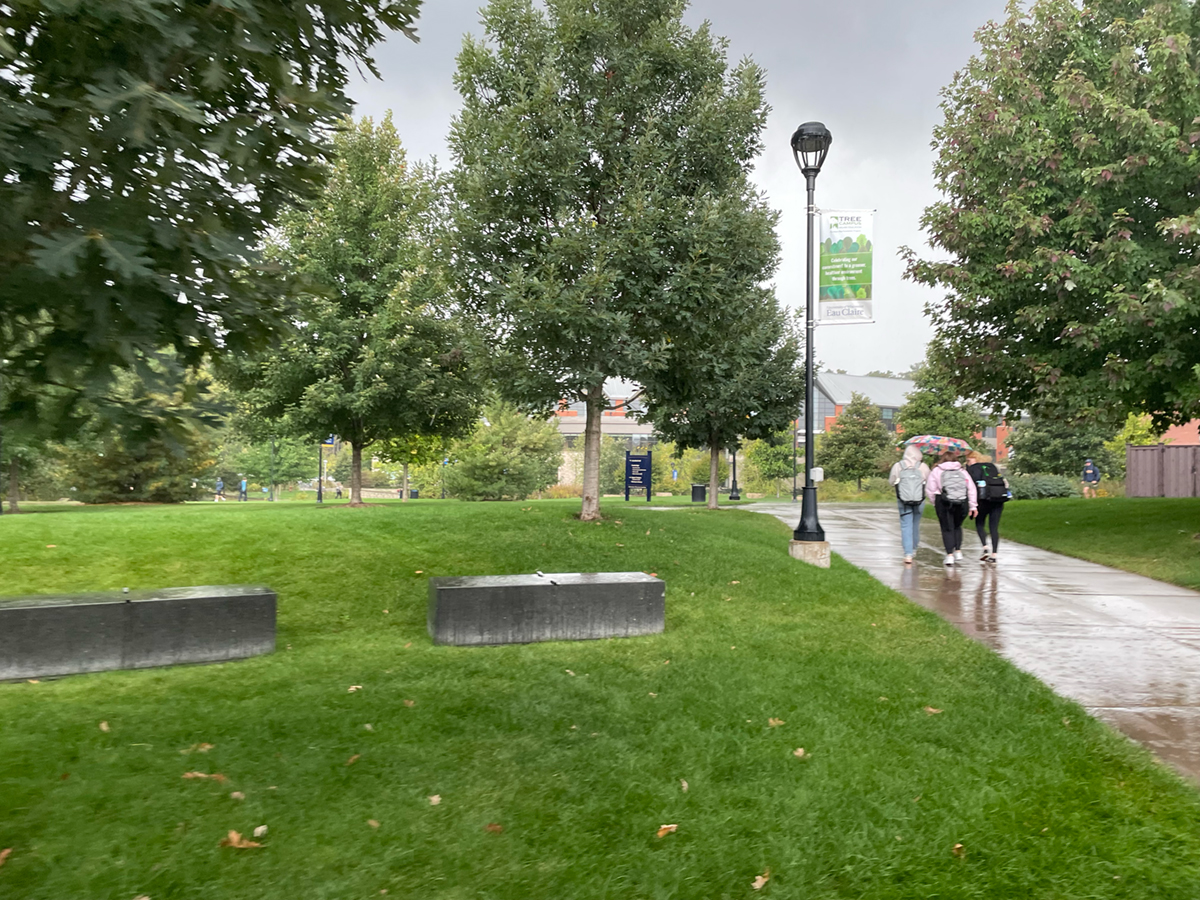UW-Eau Claire received the Tree Campus Higher Education distinction for the seventh year in a row, recognizing the university’s dedication to trees and green spaces on campus.
According to the Arbor Day Foundation, this distinction was created in 2008 to encourage campuses to grow their campus forests and offset emissions to become more carbon neutral. The distinction was founded by the foundation on college campuses, K-12 schools and corporate entities to continue Arbor Day efforts outside of the holiday.
As of 2022, 410 campuses have been recognized under the higher education distinction with 31,739 trees planted and 25,656 students engaged with campus trees.
To receive the distinction, every campus needs to hit five criteria. First, the campus needs to have a campus tree advisory committee. The second is to provide evidence of a tree care plan. The third is a verification of that plan’s expenditures.
The fourth criterion to receive the distinction is observing Arbor Day on the campus. The fifth and final criterion needed is to create a service-learning project to engage the student body.
The campus tree advisory committee hosts numerous activities to receive the distinction and further promote the plant life on campus. They host an Arbor Day event during UW-Eau Claire’s homecoming to promote nature on campus. There are also invasive species removal events to help keep Putnam Park clean and protected.
The committee also has a service learning program event where students help survey the trees on campus through i-Tree Eco. They are on the second round of surveying, mapping and documenting every tree on campus. The data collected is submitted to help calculate the carbon offset on campus and improve our sustainability ranking.
Daria Hutchinson, UW-Eau Claire’s professional landscape architect, said there is a commitment to trees on this campus with around 15,000 trees planted. Hutchsin helped initially apply for the distinction and continues to help monitor the trees.
“I’m very proud to be a part of it. I’m proud to be able to collaborate with students and faculty because it’s a concerted effort,” Hutchinson said.
According to Hutchinson, there is also yearly pruning of the trees on campus to help the trees structurally grow upwards. The pruning helps trees usually condensed in a forest grow up instead of out and promotes better branches.
Jennifer Allen, the grounds manager for the facilities department at UW-Eau Claire, said she wants to bring more awareness to the trees. Some trees on campus have QR codes for people to scan to learn more about the species and when the tree was installed.
“I think especially with the effects of COVID-19 and how many people were at home or looking for outlets, trying to get outside,” Allen said. “I think it has become a broader concept of having a healthy landscape and maybe people that weren’t necessarily paying attention to it before are now aware.”
There is an annual check of all the trees on campus, continuously monitoring and looking for room to grow. The facilities team helps keep an eye out for new practices, treatments and technologies to support the trees and continue the distinction.
To keep up with the trees on campus you can head to the Arboretum and Tree Campus website. You can also use their virtual map to find all the trees on campus and their species.
Fisher can be reached at [email protected].








